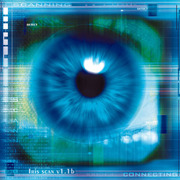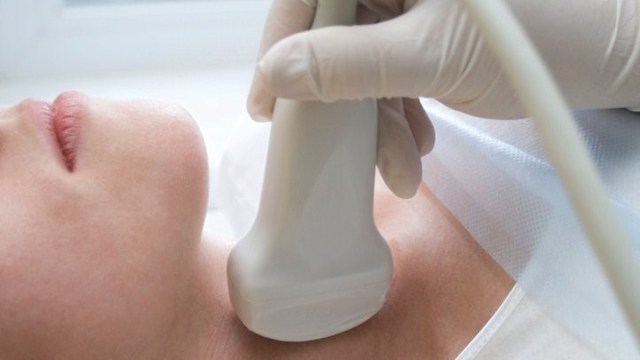Hyperthyroidism
Underactive thyroid (hypothyroidism) is a well-known condition; in contrast, overactive thyroid (hyperthyroidism) is a less appreciated but still important endocrine problem.
Recent reports found that mild or subclinical hyperthyroidism, in which the thyroid hormones, T4 and T3 are normal, but the pituitary hormone, TSH, is suppressed, may cause symptoms including fatigue, nervousness, anxiety, shortness of breath, palpitations, trouble sleeping, increased appetite, loose stool or diarrhea, tremors and weight loss, although rarely, weight gain occurs. Many patients with mild hyperthyroidism may have only a few of these symptoms. Most of these symptoms will worsen without treatment, and the patient may suffer osteoporosis (thinning of the bones) or heart disease. With proper diagnose and treatment, however, symptoms improve. Therefore, one should see an endocrinologist with expertise in thyroid disorders if you could have hyperthyroidism.
Diagnosis of hyperthyroidism and determination of the type of hyperthyroidism
There are many causes of hyperthyroidism, and proper treatment requires both a diagnosis (usually done with history and laboratory tests) and a determination of the type of hyperthyroidism (usually done with history, thyroid examination and nuclear medicine tests). To diagnose hyperthyroidism, Dr. Friedman will measure TSH, free T4 and free T3. A suppressed TSH with an elevated free T4 and free T3 indicates frank hyperthyroidism, while a suppressed TSH with an upper-normal free T4 and free T3 indicates subclinical hyperthyroidism. A suppressed TSH with a low or low-normal free T4 and free T3
indicates hypothyroidism due to a pituitary problem. An elevated TSH indicates hypothyroidism due to a thyroid problem.
Once Dr. Friedman determines that a patient has hyperthyroidism, he then determines which type of hyperthyroidism the patient has. The four common causes of hyperthyroidism are: Graves' (the most common); toxic multinodular goiter; single hot nodule (Plummer’s disease); and subacute thyroiditis.
A young (20 to 40 years old) female with a rapid onset of hyperthyroidism will often have Graves' disease, which is an autoimmune disease in which antibodies stimulate the thyroid to make extra thyroid hormones. George H.W. and Barbara Bush and Millie (the Bush’s dog) all had Graves' disease.
Barbara, but not George H.W., had exophthalmos (protuberance of the eyes seen in about 50 percent of patients with Graves' disease). I’m not sure about Millie. Toxic multinodular goiter is more common in older patients, especially those from iodine-deficient areas (Mexico and Central America, parts of Africa and Europe and older patients from around the Great Lakes region). In toxic multinodular goiter, the goiter is often very large and long standing. In a single hot nodule, only a single nodule is palpated. In subacute thyroiditis, the thyroid is tender and the patient has symptoms of a viral illness. Only in Graves' disease is exophthalmos seen.
To determine what type of hyperthyroidism the patient has, Dr. Friedman will rely on history and physical examination and also use nuclear medicine testing (thyroid uptake and scan). In Graves' disease, the thyroid gland will be diffusely enlarged and smooth and exophthalmos will be present. The thyroid uptake and scan will show high uptake in all parts of the gland. In toxic multinodular goiter, the thyroid gland will be enlarged with multiple nodules. Thyroid uptake and scan will show a high uptake with a patchy distribution. In a single hot nodule, only one nodule will be felt and the thyroid uptake and scan will show a high uptake in one nodule with suppression of uptake in the rest of
the gland. In subacute thyroiditis, the gland will be enlarged but tender. Thyroid uptake will be low. Thus, a careful examination and nuclear medicine testing can distinguish the different causes of hyperthyroidism.
Treatment of hyperthyroidism
Treatment for hyperthyroidism depends on the type, and at least for Graves' disease, is controversial. For Graves' disease, either antithyroid medicines or radioactive iodine can be used, with thyroid surgery as a last resort. Antithyroid medicines include PTU, which is usually given three times a day, or methimazole, which is either given daily or twice a day. These medications are usually given for two years and the dose is adjusted so the patient has normal thyroid function tests.
After two years, the patient stops the medication, and in approximately 50 percent of cases, the patients is cured (normal thyroid tests). About 30 percent of the patients do not achieve normal thyroid functions and have to undergo radioactive iodine ablation. The remaining 20 percent of patients have to stop the medication due to side effects (usually a skin rash or nausea) and also have to undergo radioactive iodine ablation.
A second option for treatment of Graves' disease is to undergo radioactive iodine. The thyroid gland is the only gland that takes up radioactive iodine, and long-term studies show that the incidence of cancer is not increased in patients receiving radioactive iodine. Most patients tolerate radioactive iodine well and become euthyroid (normal thyroid tests) or hypothyroid in a few months. The large majority of patients receiving radioactive iodine are cured from their hyperthyroidism, but most require L-thyroxine treatment. Radioactive iodine cannot be given in pregnancy.
Thus, the advantage of antithyroid medications is that after treatment, L-thyroxine treatment can be avoided in many patients, while the disadvantage is that some patients will remain hyperthyroid when receiving medications. In contrast, after receiving radioactive iodine, most patients are cured, but require L-thyroxine treatment. Although most patients who become hypothyroid feel well after L-thyroxine treatment, some patients never feel as well on L-thyroxine as before treatment. Surgery is an option for patients who are not eligible or do not wish to take antithyroid medications or radioactive iodine, but is usually not recommended.
Dr. Friedman discusses the risks and benefits of each treatment option with his patients. Treatment options for other forms of hyperthyroidism are more straightforward. Patients with a toxic multinodular goiter are usually good candidates for radioactive iodine, although some patients may require surgery. In some patients with low radioactive iodine uptake, giving a new drug called Thyrogen can enhance treatment with radioactive iodine. Patients with a single hot nodule do well with radioactive iodine administration. Interestingly, patients with subacute thyroiditis often become hypothyroid after a two to four month period of hyperthyroidism. Following an additional two to six month period of hypothyroidism, these patients often become euthyroid. Patients with subacute
thyroiditis should not be treated with antithyroid medications or radioactive iodine, but may benefit from NSAIDS (drugs like Advil). To control symptoms of hyperthyroidism due to all causes, some patients may benefit from a beta-blocker. Dr. Friedman recommends atenolol.
Dr. Friedman and his colleague, Dr. Patel at Charles R. Drew University in Los Angeles, are conducting a study on subclinical hyperthyroidism. They are looking for patients with a suppressed TSH, but normal free T4 and free T3. For more information about the study, please call Dr. Patel at 323-357-3691 or e-mail him at [email protected]. For information on seeing Dr. Friedman in his Los Angeles endocrinology private practice, please call 310-335-0327 or e-mail his office at [email protected].
Link to article: http://www.goodhormonehealth.com/hyperthyr_txt.pdf






Add a Comment1 Comments
Graves is tricky kind of autoimmune disease. If you follow the suggestions to build your immunity, it will get worse. Good thing there's bovine thyroid hormone . It works for me and will recommend it to anyone.
January 3, 2011 - 6:32pmThis Comment